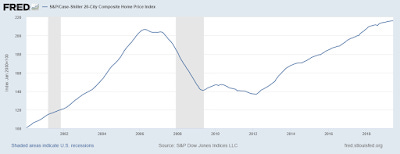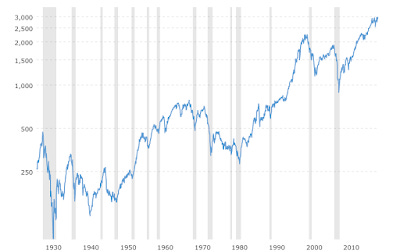Preparing for Opportunities

With all the talk in the media lately about recession fears, I have been thinking that rather than focus energy and attention on worrying about the coming recession, it's better instead to focus on the future, after the recession hits. How will you be prepared to take advantage of the many investing opportunities that will present themselves when asset prices are lower? Wouldn't you rather be a buyer and not a seller in that environment? If your investment portfolio is properly built and diversified, you should be able to ride out the recession without having to make any major changes. More importantly, you should make sure you have enough cash not only for an emergency fund in case of job loss, but to take advantage of great investing opportunities that will surely arise.
During the Great Recession, I saw many incredible real estate investing opportunities, for example, only to find that I didn't have the cash to take advantage of them. Of course, as I explained in my book on getting started in real estate investing, I opted to cash out my IRA (which had already taken a big hit) to generate the necessary funds. I'm glad I did that, since the after-tax cash on cash returns were well above 100% and that helped build the foundation of my portfolio I have today. This time around, I plan to have enough cash readily available so that I can quickly take advantage of deals as they present themselves. While the Great Recession was notable in that real estate value declines were significant and were caused primarily by very loose lending standards, those standards have been tightened significantly since that time. I'm going through a refinancing process right now and it's quite incredible how difficult it is for someone with good credit and a steady income to get a loan these days.
Also, while real estate prices have recovered and there may be pockets in the US where bubbles are forming, overall it seems that real estate values have not risen too dramatically from the last peak (see chart below). I know this also because when I got the appraisal for my refinancing, my house was valued at exactly what I paid for it back in 2006. Therefore, the real estate deals available in the next recession might not be as good as the Great Recession, but there will still be opportunities in real estate worth looking at and even small one or two bedroom condos (which have a relatively low up front cost to buy) could once again present a great investing opportunity.

Other areas of opportunity would include stocks. In a recession, we could see declines of 20% to 30% (or more) in the value of high quality stocks. Especially for dividend paying stocks, whose yields will rise as their prices drop, this would present a great opportunity to buy some passive income generating assets at a great value. Of course, I have suggested that you might not wait in the current low (and going lower) interest rate environment to start building a portfolio of solid dividend paying stocks to earn a higher rate of return. I just did a quick search on Bankrate, and the top 5 money market fund yields currently range from 1.85% to 2.2%. The current yield on the SPY ETF is 1.84% for comparison, but there are many quality names that pay 3% to 6% dividend yields currently. A recession can provide the opportunity to significantly increase your holdings of the same quality stocks. Check out my post on building a strong portfolio of dividend paying stocks here.

Chart courtesy of macrotrends.net
In looking at the S&P 500 chart above (up about 50% from last peak) in comparison to the housing price index (up about 5% from last peak), clearly there has been a lot more appreciation in stocks and therefore perhaps the best buying opportunities in the next recession will be found in the stock market. Only time will tell.
I hope you find this post useful as you chart your investing course and Build a Financial Fortress this year.
To see all my books on investing and leadership, click here.
Disclaimer: I use affiliate links where I get paid a small amount if you buy the service or product. This helps support my blog.



